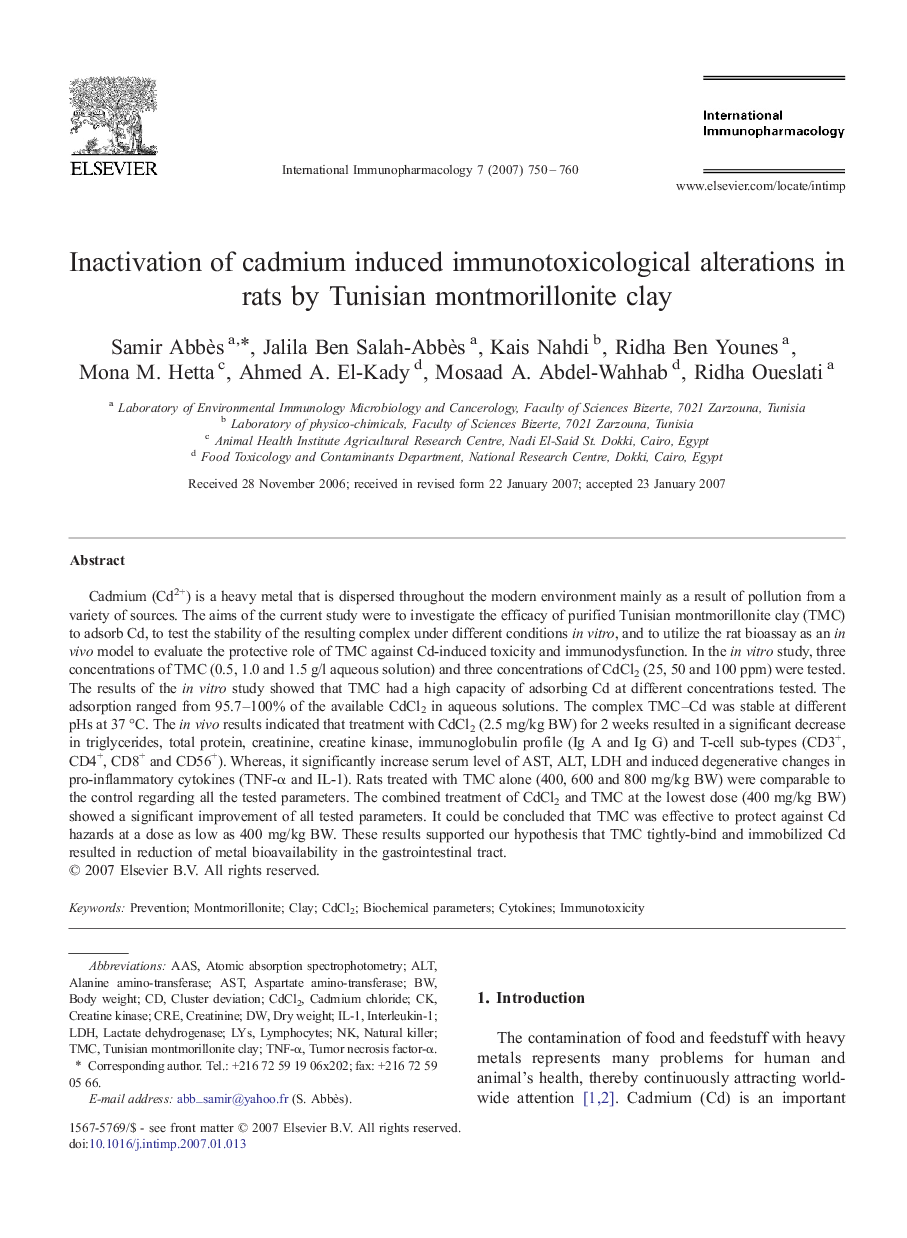| کد مقاله | کد نشریه | سال انتشار | مقاله انگلیسی | نسخه تمام متن |
|---|---|---|---|---|
| 2542495 | 1122706 | 2007 | 11 صفحه PDF | دانلود رایگان |

Cadmium (Cd2+) is a heavy metal that is dispersed throughout the modern environment mainly as a result of pollution from a variety of sources. The aims of the current study were to investigate the efficacy of purified Tunisian montmorillonite clay (TMC) to adsorb Cd, to test the stability of the resulting complex under different conditions in vitro, and to utilize the rat bioassay as an in vivo model to evaluate the protective role of TMC against Cd-induced toxicity and immunodysfunction. In the in vitro study, three concentrations of TMC (0.5, 1.0 and 1.5 g/l aqueous solution) and three concentrations of CdCl2 (25, 50 and 100 ppm) were tested. The results of the in vitro study showed that TMC had a high capacity of adsorbing Cd at different concentrations tested. The adsorption ranged from 95.7–100% of the available CdCl2 in aqueous solutions. The complex TMC–Cd was stable at different pHs at 37 °C. The in vivo results indicated that treatment with CdCl2 (2.5 mg/kg BW) for 2 weeks resulted in a significant decrease in triglycerides, total protein, creatinine, creatine kinase, immunoglobulin profile (Ig A and Ig G) and T-cell sub-types (CD3+, CD4+, CD8+ and CD56+). Whereas, it significantly increase serum level of AST, ALT, LDH and induced degenerative changes in pro-inflammatory cytokines (TNF-α and IL-1). Rats treated with TMC alone (400, 600 and 800 mg/kg BW) were comparable to the control regarding all the tested parameters. The combined treatment of CdCl2 and TMC at the lowest dose (400 mg/kg BW) showed a significant improvement of all tested parameters. It could be concluded that TMC was effective to protect against Cd hazards at a dose as low as 400 mg/kg BW. These results supported our hypothesis that TMC tightly-bind and immobilized Cd resulted in reduction of metal bioavailability in the gastrointestinal tract.
Journal: International Immunopharmacology - Volume 7, Issue 6, June 2007, Pages 750–760